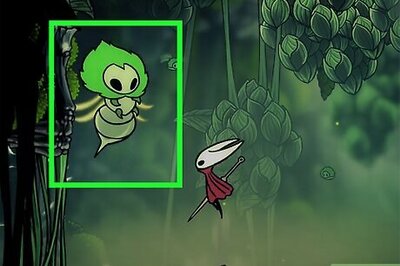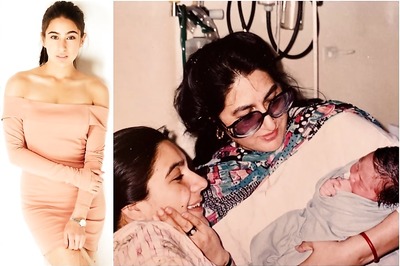
views
CHENNAI: Often called the cultural capital of the country, Chennai is famous for its patronage of the arts, every December marked by the presence of women in their rustling silks and the men in their crisp veshtis frequenting sabhas with a vengeance. It is not surprising then, that in the city which breathes and sleeps music and has produced musicians of renown, almost every child has had his/her mandatory share of Carnatic music lessons.Interestingly, though, more and more young students of music are seeking Hindustani lessons, even if only to supplement their Carnatic training.Teachers of Hindustani music in the city have noticed a marked difference in the attitude towards the form. “Earlier, only North Indians came to me,” says Meghna Dandekar, who has been teaching for several years. “Nowadays, I see more locals wishing to learn too.” Meghna attributes the interest in Hindustani music to the tremendous exposure it has received over the last few years. “The internet has been instrumental in introducing several people to Hindustani,” she smiles. “A few years earlier, I had difficulty in finding CDs, today they’re all over! Also, there are more performances, which means more people listen to this music.” However, one of the main reasons youngsters are turning to Hindustani music is for the voice culture.Several aspiring playback singers seek out teachers after they are instructed to train in a particular style by music directors. “Several come to me especially to train their voice,” Meghna says. “And it seems to help too; they come back to me with good feedback, saying they recorded songs in fewer takes and that they were applauded for the clarity of their notes.” “People have told me to learn Hindustani if I want to make it in films,” says Sameera Bharadwaj, a college student who has made Chennai her home with the express purpose of entering the recording industry.There are many students like her, who, eager to earn a name for themselves, enter singing competitions on television.Veereshwar Madri, a Hindustani musician who has been in the field for 40 years and has close to 50 students, has trained several people for such contests.“Ninty per cent of the film songs today are based on Hindustani ragas and sung in a light Hindustani style,” he says. “The school lays great emphasis on melody and an understanding of ragas and notes helps singers with film music as well.” It is this emphasis on melody and modulation that students believe helps refine their voice and infuse songs with the required dynamics.Sathish Nathan, who trained under Veereshwar, found that exercises meant for the voice strengthened his vocal cords. “I found that my breath control improved, my voice had newfound depth,” he says. “It was a different experience when compared to learning Carnatic music, which I found to be more cerebral, more intellectual.” Those who have made it big on the playback scene concur. Anitha Karthikeyan, who has recorded over 100 jingles and sung for composers like Ilaiyaraja, Rahman and Mani Shankar, in genres ranging from western to folk, has been training under Meghna for six years. “I no more sing in falsetto and my voice has opened up,” she says. “I also see a marked difference in how I throw my voice and modulate it. It has helped me tremendously in recordings.” Most importantly, though, teachers insist that the students learn to play the harmonium when they sing, in order to understand the position of notes and be able to hit them with precision.Says Sowmiya Madanagopal, a Hindustani musician who runs a school, Sunaad, “The knowledge of the musical alphabet, the swara, increases,” she says.“I often ask students to meditate on one note, and that improves their ability to sustain notes for long periods, which in turn improves control.” Sowmiya too has far more students now than when she began. “I used to travel to Pune to learn and I wanted people in Chennai to be able to learn with less difficulty and I’m glad to say it’s caught on,” she smiles.Perhaps it is the impact of television and greater exchange between Hindi and Tamil cinema (especially where music is concerned), but acceptance of anything new and different seems to have increased. “I feel we, in the south, have always been more resistant to change,” muses D Ganavya, a student.“But I suppose times are changing now, and we are willing to accept that the new and different are exciting and Hindustani music possesses that exotic value.” Chennaiites seem to be more than just willing, however; they are keen to embrace the novel and the exotic, and the rising popularity of a school once confined only to the initiated is perhaps testimony to the fact.















Comments
0 comment